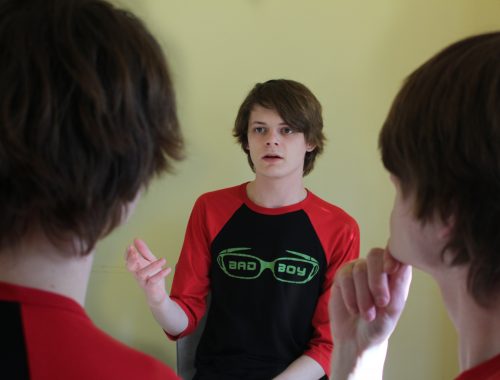Improving my approach to interviews.
The idea of being interviewed by my course mates was far from appealing to me to begin with. However, having been through the experience I can definitely see its value as it has given me excellent experience and better prepared me for the job I want to apply for. My interview was far from perfect, and I will use Borton’s reflective model (Borton) to analyse some aspects of my performance.

The Trivia Question
What?
One of the most notable occurrences of the interview was the question asking me “Who founded the BBC?”. I was caught out by this question because I had only anticipated questions asking about my skills/experiences that were relevant to the role that I was applying for. This trivia question about the company was totally unexpected for me and threw my confidence for the rest of the interview, because I knew that I had learnt the answer in a first-year module years ago but couldn’t regurgitate the answer when I was asked.
So what?
This affected the rest of my interview because I felt that I had not prepared properly and should have known the answer to the question off the top of my head. In a real interview scenario, I would have felt as if the opportunity had slipped away from me at that point. I was relatively calm heading into the interview, but this question instantly made me nervous.
Now what?
After leaving this interview I went on to read more into interview practices and found some advice on how to tackle these sorts of questions. “If your interviewer asks closed questions, you might turn them into more open ones:” (Gregory et al.). Even though I couldn’t give a specific answer to this question, I could have elaborated on what I did know about the topic by perhaps saying, “I cannot recall his name, but I remember learning about him in a first-year module at university. We discussed how he viewed the BBC as public service and how he was motivated to inform, entertain and educate his audience, rather than sell them a product”. I should have used the opportunity to demonstrate what I know, rather than lose concentration because I felt embarrassed by what I didn’t know.

Stay on topic
What?
In my feedback I was told that I often went on tangents that were not relevant to the question that was asked. When asked to describe a time in a project where something went wrong, I began to answer the question without stopping for a moment to think about my answer first. I just started talking and as a result my answer lacked focus. I began by explaining what the project was and giving a lot of detail about what we were trying to achieve with the project. I spent far too long giving the project context before I began to actually talk about the problems that we faced.
So what?
This was a terrible way to answer an interview question. I had a good anecdote to talk about which was relevant and would have demonstrated my abilities to overcome problems, but I spent too long getting to that part of the story. By then, I felt the interviewer had switched off from my answer, because they hadn’t heard anything that was really relevant to the question up to that point. This meant that the relevant section of the story didn’t have as much impact, despite its value to the question.
Now what?
I have been aware of this trait of mine for some time, and it is not always a bad thing. In informal conversations for example it can be a good thing to bring in other ideas and experiences to keep the conversation flowing. But in an interview setting, where an interviewer is looking for relevant ideas and experiences, it is important to stay on topic and not stray from the initial line of questioning.
“Knowing how to put together a strong answer to the most common interview question is obviously key to landing a job. The art and science of creating great answers involves being strategic in crafting your responses as well as being straight to the point.” (Mambo Dallu)
I am now more aware of my tendencies to stray from what is being asked of me and can now try to avoid this in the future. This will involve listening intently to the question and taking a moment to compose an answer before I begin.

This peer interview has been a fantastic experience and has highlighted some of my flaws that I now have the confidence to fix. I feel that I can approach difficult closed questions in a way that can highlight some of my knowledge and experience. I am more aware of my tendencies to lose focus on the question and will consciously try to keep my answers concise and to the point in the future.
Due to the nature of my course, I felt comfortable in an interview situation, having participated in many interviews in the role of the interviewer. This was a complacent way of thinking as I vastly underestimated the pressure one is put under as an interviewee, regardless of the interview scenario. As a result, I have decided to try and put myself in the role of an interviewee more often and have already volunteered myself to be interviewed for a fellow peer’s MA. I feel that I will become more comfortable as an interviewee with more experience and will become less likely to panic when asked a difficult question and less likely to stray from the interviewers’ line of questioning. This could also improve my interviewing skills when gathering information for my newsgathering work.

By Henry Simons 40263016
Works Cited
Borton, Terry. Reach, Touch, And Teach. Mcgraw-Hill, 1970.
Gregory, Georgina et al. Careers In Media And Film. SAGE Publications Ltd, 2014, p. 100.
legacymedsearch.com. Stressful Interview. https://legacymedsearch.com/wp-content/uploads/2018/02/Interview-2-e1519328728743.jpg. Accessed 18 Feb 2022.
Mambo Dallu, Abdallah. “Answering The Interview Question”. The Accountant, 2021, pp. 28-30, https://repo.umma.ac.ke/bitstream/handle/123456789/65/The%20Accountant%20May-June%202021-Answering%20the%20interview%20question-%20%E2%80%9CDescribe%20the%20audit%20process%20for%20new%20engagements%E2%80%9D.pdf?sequence=1&isAllowed=y. Accessed 18 Feb 2022.
smartrapper.com. Keep Calm And Stay On Topic. https://www.smartrapper.com/write-a-rap-song/. Accessed 18 Feb 2022.
TU Dublin Library Services. Overview Of Driscoll’s Reflective Model. 2020, https://tudublin.libguides.com/c.php?g=684780&p=4891210. Accessed 25 Nov 2021.
You May Also Like

Shocker, Tom also sucks at interviews!
18 February 2022
Finding the Right Balance: My Simulated Interview Experience
14 February 2022
